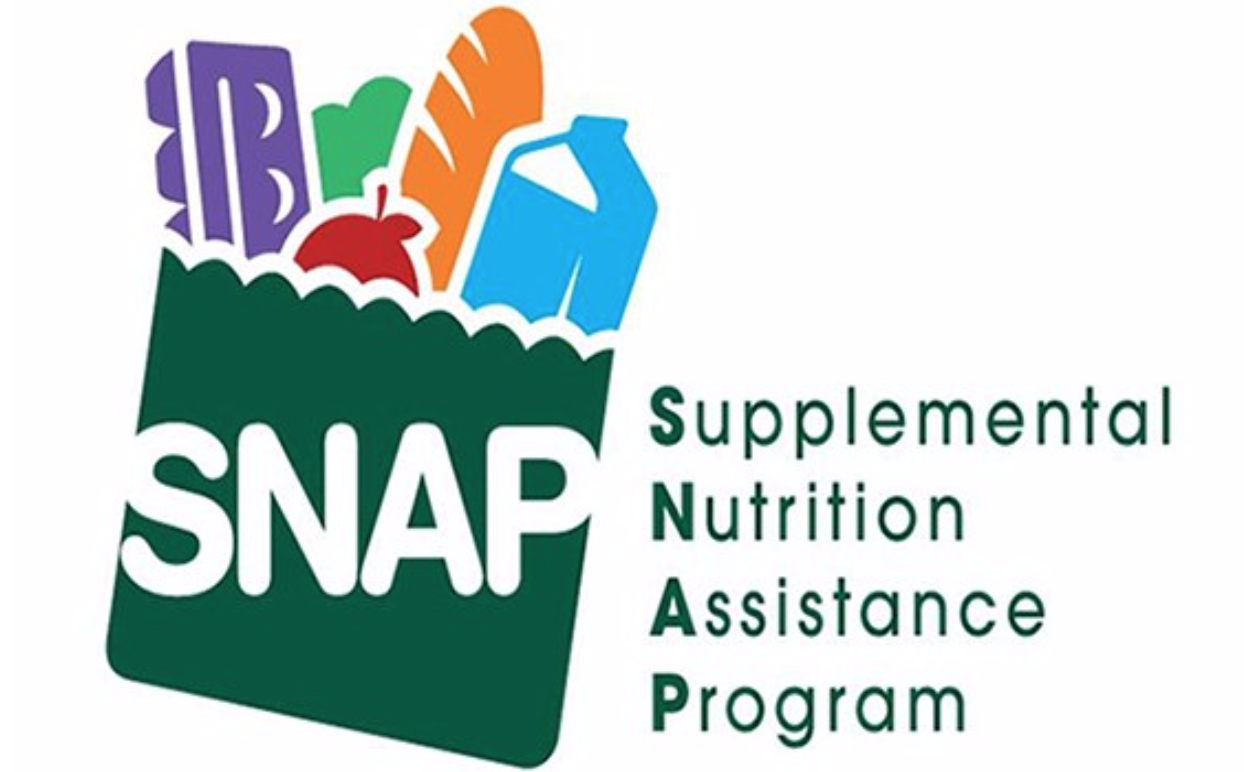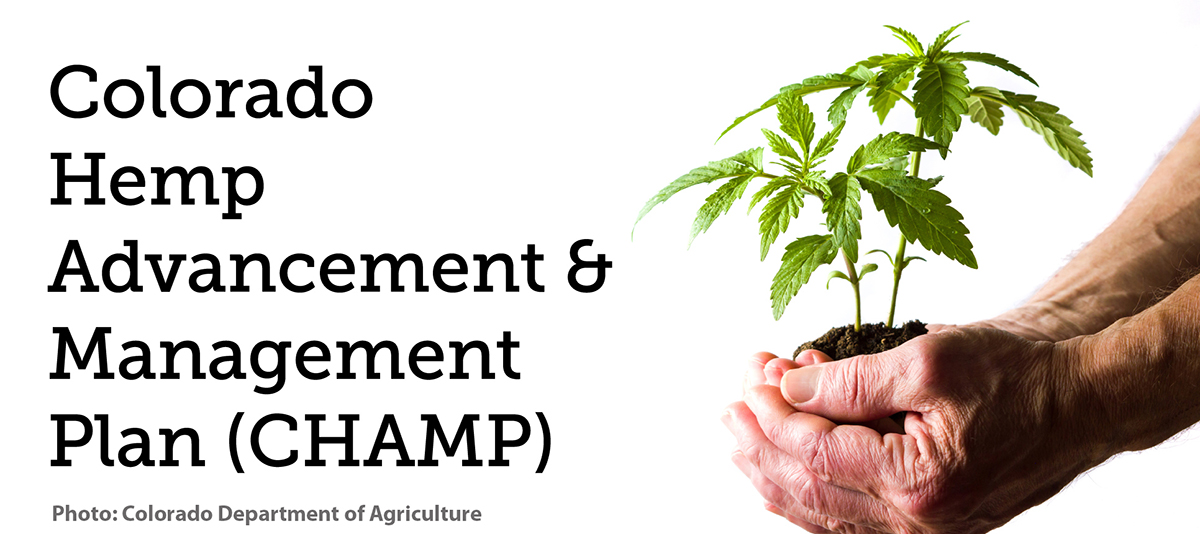Proposed Tariffs on European Products Would Devastate Specialty Food Sales
Photo: Pexels
Originally Appeared in Presence Marketing News, September 2019
By Steven Hoffman
The Trump administration is currently considering adding tariffs this fall to a large number of items imported into the U.S. from the European Union (EU), including most foreign cheeses. Many top-selling and popular cheeses including Italian Parmigiano-Reggiano and Dutch Gouda could become twice as expensive, reports Modern Farmer. The tariff proposal would increase duties on hundreds of EU products by as much as 100%. Originating from a trade dispute in the aviation industry, the proposed tariffs, supposedly meant to punish the EU, will end up directly impacting specialty food retailers who are already operating on thin margins. According to the Specialty Foods Association, the latest list of proposed tariffs includes 100% levies on a range of pork products, cheeses, pastas, coffee, olives and other goods. “If something happens, we are insulated for a time,” Bob Marcelli, owner of specialty food importer Marcelli Formaggi in Clifton, NJ, told Specialty Food News. “But long term, it would be just devastating. Everybody’s going to pay more; that’s the bottom line, he said.
Trader Convicted in Organic Fraud Scheme Commits Suicide Before Serving 10-Year Prison Sentence
Photo: Pexels
Originally Appeared in Presence Marketing News, September 2019
By Steven Hoffman
Facing incarceration for his role in masterminding a $142 million organic grain fraud scheme, organic farmer and trader Randy Constant was found dead by suicide on August 19 at his home in Chillicothe, MO. Constant was sentenced on August 16 by a federal court judge to 10 years in prison for knowingly marketing and selling non-organic corn and soybeans as organic. Federal prosecutors called the scheme “one of the largest, if not the largest, organic fraud schemes in the history of the United States.” Police officers found Constant dead from carbon monoxide poisoning weeks before he was to report to federal prison. Prosecutors alleged that Constant falsely marketed non-organic grains as certified organic on a massive scale, reported Time Magazine. Sales through his Iowa grain brokerage equaled up to 7% of the organic corn grown in the U.S. in 2016 and 8% of organic soybeans. From 2010 to 2017, Constant was reported to have sold over 11.5 million bushels of grain, primarily used as feed for chickens and cattle, which would then be unwittingly marketed as organic meat products by the respective producers. Constant’s death came as authorities publicized his prison term, which they hoped would deter other farmers from defrauding the National Organic Program, reported Time Magazine. Judge C.J. Williams said during the sentencing hearing that Constant’s fraud did “extreme and incalculable damage” to consumers and undermined public confidence in the nation’s organic food industry.
Presence Marketing’s Tracy Miedema Featured at AHPA Hemp-CBD Congress
Photo: AHPA
Originally Appeared in Presence Marketing News, September 2019
By Steven Hoffman
Comparing CBD to other herb-derived products like echinacea, American Herbal Products Association (AHPA) Chief Executive Michael McGuffin said, “Hemp is just another herb that should be regulated the same as any other dietary supplement.” Speaking at the sold-out AHPA Hemp-CBD Congress held in Denver on August 15-16, McGuffin said CBD producers should be expected to comply with “all federal regulations” including using registered food and processing facilities. Tracy Miedema, VP of Innovation and Brand Development for Presence Marketing / Dynamic Presence, also spoke at the conference, which was sponsored in part by Presence Marketing. Miedema, a “true believer” who was married in the 1990s in a hemp wedding dress, said CBD is a huge phenomenon worldwide, expected to generate between $15 billion and $20 billion in sales in the next few years. Miedema, who is a board member of the Lexington, KY-based U.S. Hemp Roundtable, was quoted in UPI News saying, “When the 2018 Farm Bill passed, taking CBD off the Schedule 1 [drug list], that unlocked the potential in funding.” Commenting on the uncertain regulatory environment, Miedema added, “This is a political problem, not a legal problem. Neither supply nor demand can be stopped at this point.” Colorado Governor Jared Polis, a champion of hemp, opened the Hemp-CBD Congress, declaring hemp “a crop of the past and yes, a crop of the future.”
Natural Products Association (NPA) Files for Bankruptcy
Photo: Natural Products Association (NPA)
Originally Appeared in Presence Marketing News, September 2019
By Steven Hoffman
The Natural Products Association, (NPA) the oldest trade group in the natural products industry, filed for bankruptcy protection on August 19, 2019, which it attributed to six straight years of losses and a costly arbitration with the association’s former CFO. According to Reuters, NPA CEO Daniel Fabricant said in a filing with the U.S. bankruptcy court in Wilmington, DE, that the Chapter 11 case will provide a “breathing spell” for the Washington, D.C.-based trade group to focus on advocacy and membership. Founded in 1936 and formerly known as the National Nutritional Foods Association, NPA said it has more than 1,000 members comprising over 10,000 retail, manufacturing, wholesale and distribution locations for natural foods, dietary supplements and natural health and beauty products. According to Reuters, NPA’s former CFO Brent Weickert holds the largest unsecured claim in the bankruptcy petition – a disputed $780,179 arbitration settlement awarded as a result of a wrongful termination lawsuit filed by Weickert in 2015 against NPA.
Athletic Appeal – Former Professional Athletes Passionate About the Hemp/CBD Business
From Left: Two-Time Funny Car World Champion turned hemp farmer Matt Hagan; NFL Veteran and CBD advocate Kyle Turley; and former NHL player turned hemp educator and CBD entrepreneur Riley Cote. Photos: Matt Hagan: Matt Hagan/Twitter; Kyle Turley: NeuroXPF.com; Riley Cote: Athletes for Care.
Originally Appeared in Let’s Talk Hemp Newsletter, August 2019
By Steven Hoffman
Hear two-time Funny Car World Champion turned hemp farmer Matt Hagan, NFL veteran and CBD advocate Kyle Turley, and former NHL player Riley Cote, CBD entrepreneur and co-founder of Athletes for Care, speak at the 2nd Annual Southern Hemp Expo, September 6-7, 2019, at the Williamson County AG Expo Park in Franklin, TN.
Professional athletes know how to take a lickin’ and keep on tickin.’ However, after years in the sports world, athletes are increasingly turning to full spectrum hemp extract and CBD to help provide relief for stress and for injuries accumulated over a career or a lifetime of impact athletics.
Three such former professional athletes were so impressed with results garnered from full spectrum hemp extract that they got into the business – one, two-time Funny Car World Champion Matt Hagan, as a hemp farmer; another, Kyle Turley, is a former NFL player who says CBD saved is life; and the third, former NHL player Riley Cote, is a hemp advocate and educator and also a marketer of CBD products to athletes, weekend warriors and the general public. Matt, Kyle and Riley will be featured speakers at the upcoming Southern Hemp Expo September 6-7, 2019, at the Williamson County AG Expo Park in Franklin, TN.
Matt Hagan – Funny CarWorld Champion Turned Organic Hemp Farmer
Recognized as a top competitor in the world of Funny Car drag racing, Matt Hagan is also a beef cattle farmer. When the 2018 Farm Bill passed, he immediately started planning to plant 140,000 plants on 90 acres, making his TruHarvest Farms one of the largest hemp farms in Virginia. “Every day I feel better about it,” Hagan told his local TV station, WFXR, at the beginning of the planting season. “The first couple of days starting this up I was ready to puke, ‘cause it’s just the unknown, the fear of the unknown.” However, Hagan added, “We’ve picked up over 20 people to work this farm for this year and that alone is driving revenue back into our country and into our state.” Hagan plans to sell his organically produced hemp plants to create CBD and strives to break the stigma around hemp. In the future, he hopes to open his farm to educate people on the uses of hemp and its differences from marijuana.
Riley Cote – From NHL Enforcer to CBD Educator and Entrepreneur
Riley Cote is a former professional left winger in the National Hockey League (NHL). He spent four seasons (2006-2010) with the Philadelphia Flyers where he was renowned for his role as an enforcer. Upon retiring from the NHL, Cote founded the Hemp Heals Foundation, a 501 (c) 3 non-profit organization dedicated to promoting hemp as a viable renewable resource that can help increase the quality lives of all people. Cote also sits on the Pennsylvania Hemp Industries Council (PAHIC) board. As a co-founder of Athletes For Care and one of its NHL League Ambassadors, Cote continues to pursue his passion to help athletes discover safe, non-toxic ways to find relief, manage pain and achieve a better understanding of self-healing. Riley recently launched BodyChek Wellness, a line of full spectrum hemp extract-based products with a mission to optimize everyday performance and challenge individuals to rethink the healing process. The BodyChek Wellness line reinforces Cote’s passion to help individuals discover safe nontoxic methods for pain management and self-healing.
Kyle Turley – After 100+ Concussions in the NFL, CBD Saved His Life
Diagnosed with chronic traumatic encephalopathy (CTE) due to the 100-plus concussions he received during the 10 years he played as an NFL offensive lineman, Kyle Turley struggled with pharmaceutical addiction, violent thoughts, and suicidal tendencies — until he started taking medical marijuana. “It saved my life,” he says. “I wouldn’t be where I am today, I would not have my family, my kids, my house, everything I have right now, if not for cannabis.” To help save other lives, Turley founded the Gridiron Cannabis Coalition to use his story and those of other players to advance the idea of marijuana as a valid medicine for neurological conditions and other athletic injuries. “This plant has to be set free,” he says. “We have people committing suicide in football and other sports. How far do we have to go?” Knowing the value of the plant and the hurdles that the government and big pharma has placed on marijuana, Kyle has created Neuro XPF, a lab tested, federal guideline compliant, THC-Free, CBD (Hemp derived) cannabis supplement focused on bioavailability. CBD (cannabidiol) has shown in studies to have neuro-protective and antioxidative properties that could address a myriad of maladies facing our military and NFL veterans while supporting the general health and wellbeing of all aged athletes, says Turley.
USDA Proposal Seeks to Remove 3 Million Recipients from Food Stamps and Rescind School Lunch from Over 265,000 Children
Originally Appeared in Presence Marketing News, August 2019
By Steven Hoffman
The U.S. Department of Agriculture (USDA) on July 23 proposed new rules to limit access to food stamps for households with savings and other assets, a measure that could cut benefits to 3.1 million people participating in the Supplemental Nutritional Assistance Program (SNAP). According to USDA Secretary Sonny Perdue in a call with reporters, the proposed SNAP rules are aimed at ending automatic eligibility for those who are already receiving federal and state assistance. “What we’ve found is some states are taking advantage of loopholes. This proposal will save money and preserve the integrity of the program. SNAP should be a temporary safety net,” said Perdue. Secretary Perdue’s “rhetoric makes it sound like there are many households out there taking advantage of this so-called ‘loophole,’” reported H. Claire Brown in New Food Economy. However, Brown points out that the Congressional Research Office (CRO) found that only 4.2% of households that received SNAP benefits in 2016 were making more than the SNAP program income limit of 130 percent of the federal poverty line, or approximately $1,307 per month for an individual.
The majority of SNAP recipients—85%—fell below the poverty line. This suggests that the number of families that make a little more money and are grandfathered in by broad-based categorical eligibility is quite small, Brown asserts. The Trump administration estimates that the new rule will rescind food assistance from about 3 million of a total 36 million SNAP participants, or about 8% of the total. Based on CRO estimates, “this seems to indicate it’s possible that many of the people who stand to lose benefits are actually eligible for SNAP under the regular rules—they just haven’t gone through the process of filling out all the paperwork,” Brown writes. “This rule seems to be inserting another layer of red tape between people entitled to food assistance and their benefits,” she adds. In addition, Brown reports, USDA’s proposed changes could potentially take free school lunch away from 265,000 students. Students are automatically eligible for free lunch if they receive SNAP benefits. If automatic SNAP eligibility is uncoupled from the Temporary Assistance for Needy Families program, children may lose their free lunch as a result. When asked about this on the press call, Brandon Lipps, administrator of the USDA Food and Nutrition Service, said, “USDA is estimating all the children who will no longer be directly certified for school meals if their parents are not categorically eligible would qualify for free or reduced price meals through the regular application process.” What this means, Brown reports, is more paperwork for parents.
Photo: Wikimedia Commons
Market Update: Organic and Plant-Based Food Sales
Originally Appeared in Presence Marketing News, August 2019
By Steven Hoffman
Rabobank: Organic Food Sales Growth Slows; Market to Hit $60 Billion by 2022
Between 2010 and 2016, organic food retail sales grew by an average of 10% per year, however, that growth has slowed to 5.9% for the past two years, says Rabobank. The international bank, known for its focus on food, predicts that organic food sales will reach $60 billion by 2022. While fruits and vegetables remain the top organic food category, representing 36% of all organic food purchases in 2018, even that category is showing signs of slowed growth, noted Rabobank Senior Analyst Roland Fumasi in a report by Food Navigator USA. “Organic produce availability has now become mainstream which means that the organic produce market will continue to more closely resemble the traditionally grown produce market,” Fumasi told Food Navigator USA. “Just a few short years ago, both organic produce prices and organic produce volumes were rising, indicating that demand expansion was occurring more rapidly than supply growth. However, there are indications that continued growth in the organic movement has partially been driven by lower prices for some of the top-selling organic product items.” Fumasi predicts that in a few years, demand for organic produce will see an increase in sales as millennials grow their income and start their own families.
Plant-based Food Sales Growing 5X Faster than Overall Food Sales
Plant-based food sales are growing like a weed, according to new research from the Plant Based Foods Association and the Good Food Institute. According to the research published in July 2019, U.S. retail sales of plant-based foods have grown 11% in the past year, bringing the total plant-based market value to $4.5 billion. Since April 2017, total plant-based food sales increased 31% according to the study. Additionally, plant-based foods unit sales are up 8.5%, compared to total U.S. food sales, which are flat, showing the overall health and momentum of the plant-based foods category. The data covers the total U.S. grocery marketplace and was commissioned from SPINS, a wellness-focused data technology company and retail analytics provider, says the Plant Based Foods Association (PBFA). According to PBFA, sales of the plant-based meat category alone is worth more than $800 million, with sales growth of 10% in the past year. Refrigerated plant-based meat is driving category growth with a 37% sales increase. Sales of plant-based milks, which grew 6% over the past year, now comprise 13% of the entire milk category, while cow’s milk sales have declined 3% over the same period. In addition, in the past year, plant-based yogurt has grown 39%, while conventional yogurt declined 3%; plant-based cheese has grown 19%, while conventional cheese is flat; and plant-based ice cream and frozen novelty has grown 27%, while conventional ice cream and frozen novelty has grown just 1%, according to the PBFA study.
Good Food Insights: Natural Continues to Set the Pace
Here’s some good news for natural products marketers, writes New Hope Network’s Bob Benenson: Natural product sales are growing five times faster than conventional product sales nationally—in the Multi-Outlet (MULO) channel, a.k.a. traditional grocery chains. Here’s the even better news: Natural product growth in this channel, where the vast majority of Americans get their groceries, outstrips conventional growth in all seven regions of the U.S., as defined by SPINS, the leading data market research firm for the natural, organic and specialty products industry. Along with FamilyFarmed’s Good Food Accelerator, Naturally Chicago and Esca Bona, SPINS is a collaborator in the Good Food Insights series. Based on the annual State of Good Food Report, derived from SPINS’ analysis of MULO market data for the 52 weeks ending May 19, 2019, while natural products comprise 9% of total sales in the MULO channel, sales in this category grew 5% over the study period, compared to 1% growth for conventional products. “Conventional retailers are recognizing that the rise of natural is an ongoing historic and generational shift, not a fad. And as they address consumer demand by adding more natural products to their shelves, they are jump-starting further growth in the sector,” writes Benenson. According to SPINS, California has the largest MULO market share of natural products at 14%, followed by the Northeast, with 12% MULO market share for natural products. The South-Central states recorded the lowest MULO market share, with only 6% of sales attributed to natural products. According to Andrew Henkel, SVP of Brand Growth Solutions at SPINS, the forerunner regions have the biggest consumer bases that are apt to adopt a “good food and natural products lifestyle.” “Parts of the country that have significant urban, progressive consumer bases are indicators of where the rest of the country is going to go,” Henkel told New Hope Network.
A New Public Private Partnership, the Colorado Hemp Advancement & Management Plan (CHAMP), Is Set to Strengthen the State’s Leadership Position in Hemp
Originally appeared in the Let’s Talk Hemp Blog & Newsletter
By Steven Hoffman
With the passage in 2012 of marijuana legalization in Colorado, the hemp industry also got an early start in the state, and Colorado is now considered one of the country’s epicenters of hemp agriculture, manufacturing and production. To further that leadership position, Governor Jared Polis has created a unique new public-private initiative, the Colorado Hemp Advancement & Management Plan (CHAMP). His priority in establishing the CHAMP initiative is for “Colorado to remain an innovating force in the promotion of this high-value agricultural commodity,” says the CHAMP website.
Led by Betsy Markey, former Representative to U.S. Congress and current cabinet member of the Polis administration and Executive Director of the Colorado Office of Economic Development and International Trade, along with Colorado Commissioner of Agriculture Kate Greenberg, CHAMP is a year-long statewide initiative that brings together state, local and tribal agencies, as well as industry experts in cultivation, testing, research, processing, finance, economics and marketing. The collaborative effort to help formulate a blueprint for Colorado’s hemp industry includes the Colorado Department of Agriculture, Governor’s Office, Department of Public Health and Environment, Department of Revenue, Department of Regulatory Agencies, Office of Economic Development and International Trade, Department of Public Safety, Colorado Commission of Indian Affairs, Department of Higher Education, local governments and industry experts.
“We had one of the first hemp programs in the country,” Greenberg recently told Westword Magazine. “We’ve got pretty incredible experience in Colorado; our state is set up for it, and our governor is all about hemp. It’s a fantastic time to be doing this work in Colorado, so I think by all accounts, we are ahead of the game. Our intent is to stay there,” she said. In addition to serving as Colorado Commissioner of Agriculture, Greenberg is the former Western Program Director of the National Young Farmers Coalition.
When asked about how to handle issues like “hot” hemp (hemp that exceeds the legal limit of THC), Greenberg said, “Before CHAMP, we didn’t have an avenue to figure these things out, so we took leadership in creating a structure that will allow regulatory agencies, industries, Native tribes, learning institutions and farmers to sit around a table and actually develop answers. There are still so many questions about the X, Y and Z of hemp — like interstate transport [and] how the Department of Public Safety can determine what is hemp and what is not. All of those questions finally have a table to sit at,” Greenberg said.
“CHAMP… is a huge, coordinated effort that includes anyone who has a stake in the game across Colorado, but it’s also going to be open-sourced,” Greenberg continued. “We’ve been talking to other states that don’t have programs, and are offering our expertise. We don’t see this as something we need to hold on to and keep away from everyone. We’ve got a national and international industry with this now, and we can’t keep it within closed borders in Colorado. This is going to have to include interstate commerce, and we really see our creativity and desire to bring in thought leaders as ways to continue our leadership,” she added.
“One way to establish our leadership is getting our state plan into the USDA. We’re in close communication with the USDA to make sure they see us as a partner in this, and that we are a resource. Submitting our state plan is big here, just to make sure our state’s hemp program is still a leader. Another one is the larger CHAMP report, which will show what it takes to grow our hemp industry beyond the Farm Bill. This is a big-vision process,” Greenberg said.
The CHAMP initiative is divided into eight “Stakeholder Groups,” including Research & Development and Seed; Cultivation; Transportation; Testing; Processing; Manufacturing (Food Commodities); Marketing; and Banking and Insurance. The stakeholder groups are scheduled to meet this summer and fall. In addition, leaders of the CHAMP initiative will hold several public meetings, with the first scheduled for Friday, August 16, 2019, in Hesperus, CO. To RSVP for the public meeting and for more information, visit https://www.colorado.gov/pacific/agplants/champ-initiative.
Editor’s Note: Morris Beegle, Co-founder of We Are for Better Alternatives (WAFBA), producer of the NoCo Hemp Expo, Southern Hemp Expo, Hemp on the Slope, Hawaii Hemp Expo and the Let’s Talk Hemp Podcast and Newsletter, was appointed to serve on the CHAMP Marketing Stakeholder Group. In addition, Steven Hoffman of Compass Natural, public relations agency of record for WAFBA and Editor of the Let’s Talk Hemp Newsletter, was also named to the CHAMP Marketing Stakeholder Group.
Leading Hemp Heritage: Renowned Environmental Activist Winona LaDuke Plans to Revitalize Hemp as an Emerging Enterprise to Create a Green Economy for the Next Generation of Native American Farmers
As Hemp Popularity Builds Nationwide, LaDuke Plans First Modern-Day, Hemp-Based Textile Mill in Minnesota with the Support of Local Farmers and Crowd Funding to Revitalize the Fiber Industry on Native American Soil to Grow for the Future.
White Earth Reservation, MN (August 13, 2019) – In the treaty territories and reservation of the Anishinaabeg, or the Ojibwe people, Winona LaDuke is planning the next economy. "Hemp is a cornerstone of a post petroleum economy and needs to be reintegrated into rural farming, particularly Indigenous farming," says Winona LaDuke who is poised to elevate her Hemp and Heritage Farm by launching a national crowd-sourcing initiative to further protect the Earth and revitalize the once vibrant hemp-fiber industry in Minnesota.
Winona’s Hemp & Heritage Farm, located near the White Earth Reservation in Northern Minnesota, is working with the Anishinaabe Agricultural Institute to build a new locally-grown economy based on food, energy, and fiber through a new hemp production facility on LaDuke's own independent land adjacent to nearby tribal lands. Hemp mills are not new to Minnesota, but they have not been active since the government shut them down in 1944. According to Hempology, the 11 hemp mills that were built in 1943 were forced to shut down one year later by the U.S. government, citing lack of needs due to ‘war purposes.’
Essentially, farmers suffered financial despair, as they were expecting to reap a significant profit thanks to hemp’s bounty. Ultimately, the farmers had nowhere to turn to manufacture their crops due to the government orders to shut down.
Nearly 70 years later, Winona LaDuke was one of the first participants in 2016 to receive an official industrial permit to grow hemp in the state of Minnesota. Winona’s vision is to generate local wealth in her community by establishing a farm that prospers from native heritage foods and also by implementing renewable hemp farming practices. In addition, her goal is to restore the land and provide farmers with the financial hope they deserve by cultivating industrial hemp.
“Sustainably speaking, hemp has been misunderstood for so many years. Not anymore. Hemp is our seed of hope. We plant these seeds and I see our future in which we flourish,” explains LaDuke. “When I work in our fields, I know my ancestors are watching us all. Our prophecies call this the time of the seventh fire, and we are instructed to choose a green or scorched path. This is the green path- fiber hemp and hemp overall is the key to the post petroleum economy. It’s time to wean ourselves from a hydrocarbon economy, and move back to a carbohydrate economy. The Green path is here”.
Winona’s Hemp and Heritage Farm is on a mission to make hemp not only the solution, but the key stimulator for economic growth in the region. “We’re raising more than $250,000 to launch our hemp mill fiber and textile operations. The main purpose for the mill is to make fiber for clothing and eventually high-quality paper, rope, food products and sustainable housing materials,” says LaDuke. “Native people have been working with hemp for centuries and our indigenous leaders are urging us to move forward and be there for the farmers of today to grow our future together,” she shares.
Hemp vs Cotton
Research indicates that cotton needs about 50 percent more water per season than hemp, which can grow with little irrigation. More than 70% of the global cotton harvest comes from irrigated land, which poses a risk for groundwater contamination. Hemp takes very little water and is strong enough to grow in fields without depleting our natural resources.
Food, Energy & Fuel
Winona’s Hemp and Heritage Farm utilizes solar power for its buildings, and horse-based energy in their fields. Vegetables and supplying food to the community is another passion of Winona’s. “We grow food such as corn, potatoes, squash, beans and other vegetables that focuses on regenerative farming and most importantly focuses on reduced petroleum agriculture,” explains LaDuke. “The future is organic; it’s green and local.”
Kickstart Campaign
Join Winona LaDuke and her fundraising efforts to fight climate change, build community, stimulate a new economy, and preserve the Anishinaabe Akiing territory, a beautiful land of biodiversity and pristine waters in Minnesota.
About Winona’s Hemp & Heritage Farm
Winona’s Hemp and Heritage Farm is about moving forward with our ancestral wisdom to create the regenerative economies our children deserve to inherit. Winona’s Hemp & Heritage Farm works with both tribal and non-tribal organic producers to create a value-added hemp industry to make paper, clothing and hemp food products. Visit www.winonashemp.com.
About Winona LaDuke
Winona LaDuke is an author, economist and expert working on issues of sustainable development, renewable energy and food systems. She lives and works on the White Earth Reservation in northern Minnesota, and is a two time Vice Presidential candidate with Ralph Nader for the Green Party. Winona is Program Director of Honor the Earth, where she works internationally on climate change and environmental justice with Indigenous communities. Winona has farmed for 20 years. Winona received her B.A. in Economics from Harvard University and her M.A. in Community Economic Development at Antioch University.
Media Contact:
Steven Hoffman, Compass Natural, 303.807.1042, steve@compassnatural.com
Can Unilever Stop Massive Plastic Pollution of Our Oceans?
Originally Appeared in Presence Marketing News, August 2019
By Steven Hoffman
An estimated 1 million ocean animals are killed each year as a result of plastic pollution. Now, one of the world’s biggest plastic polluters – Unilever – has made it a top priority to reduce plastic pollution. According to CNBC, on any given day, 2.5 billion people use Unilever products that comprise 400 household brands, yet the company knows its $158-billion market cap has come as the expense of the environment. According to Unilever, the company invests more than $1 billion annually on research and development, of which new plastics innovation is a component. In 2018, Unilever’s brands most committed to sustainability, including such “sustainable living” brands as Ben and Jerry’s, Seventh Generation and Pukka Herbs, grew 46% faster than the rest of its business and delivered 70% of its turnover growth.
“All of Unilever's brands are on a journey towards reducing their environmental footprint and increasing their positive social impact. Sustainable living brands are those that are furthest ahead on the journey to achieving the company’s ambitious sustainability goals,” Unilever said in a statement. As a result of its initiatives, the consumer giant says it has cut down on plastic use by 15% and is beginning to use bioplastics and refillable metal bottles for bodycare and other items. Since the company signed on in 1017 to an Ellen MacArthur Foundation initiative called The New Plastics Economy, Unilever committ3ed to making all of its plastic packaging either reusable, recyclable or compostable by 2025. Addressing the issue of packaging is a great way to start changing the way plastic is used, Shelie Miller, a University of Michigan professor who studies packaging and sustainability, told CNBC. “Packaging is produced to become waste,” she says. “That makes it unique among manufactured goods.” Natural products manufacturers can find a wealth of sustainable packaging resources at OSC2’s Climate Collaborative: https://www.climatecollaborative.com/packaging_resources, and at New Hope Network: https://www.newhope.com/manufacturing-and-supply-business-resources/what-can-my-brand-do-help-solve-our-plastics-problem.











